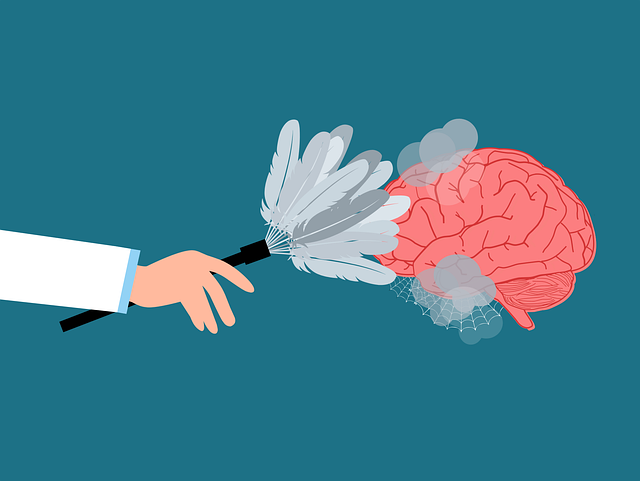Lakewood Mental Health Evaluations Therapy prioritizes structured mental wellness assessments to personalize group therapy experiences. Through open dialogue, mindfulness, and tailored journaling, facilitators create safe spaces for emotional expression. Interactive activities enhance engagement and prevent burnout. Success is measured using assessment tools tracking individual progress, group dynamics, and therapeutic outcomes, ensuring adjustments for optimal treatment plans.
Mental wellness group facilitation is a powerful tool for fostering community and supporting individuals in their healing journeys. This article explores effective techniques for group therapy sessions, beginning with the foundational understanding of Lakewood Mental Health Evaluations. We delve into strategies to create safe, therapeutic spaces, engaging participants through interactive activities. Additionally, we discuss assessment tools to measure the success of these groups, ensuring evidence-based practices in Lakewood Mental Health Evaluation therapy.
- Understanding Lakewood Mental Health Evaluations: A Foundation for Group Facilitation
- Engaging Techniques to Foster Safe and Therapeutic Group Environments
- Measuring Success: Assessment Tools for Effective Group Therapy Sessions
Understanding Lakewood Mental Health Evaluations: A Foundation for Group Facilitation

Understanding Lakewood Mental Health Evaluations is a cornerstone for effective group facilitation in therapy. These evaluations provide a comprehensive framework to assess individuals’ mental wellness, allowing facilitators to tailor their approach for diverse needs within a group setting. By integrating insights from these assessments, therapists can create a safe and supportive environment, fostering open dialogue and encouraging active participation.
This process begins with identifying each participant’s emotional state, psychological history, and potential risks. Facilitators use this information to guide discussions, incorporate relevant mindfulness meditation practices, and offer tailored Mental Wellness Journaling Exercise Guidance. Moreover, understanding these evaluations enables effective risk management planning for mental health professionals, ensuring the well-being of both facilitators and group members.
Engaging Techniques to Foster Safe and Therapeutic Group Environments

Creating a safe and therapeutic space is paramount when facilitating mental wellness groups, fostering open dialogue and encouraging participants to share their experiences. Techniques such as active listening, empathy, and non-judgmental attitudes are essential tools for group leaders. By creating an environment free from criticism or stigma, individuals feel more comfortable expressing their thoughts and emotions, leading to deeper connections within the group.
Additionally, incorporating interactive activities like role-playing, mindfulness exercises, and group discussions on relevant topics can enhance engagement. These methods not only promote stress reduction but also serve as burnout prevention strategies for healthcare providers who may be facilitating these sessions. Incorporating such engaging techniques aligns with the broader goals of mental wellness coaching programs development, ensuring that participants leave each session feeling supported and empowered to manage their mental health effectively.
Measuring Success: Assessment Tools for Effective Group Therapy Sessions

Measuring success in group therapy sessions is paramount to ensuring effective mental health support. Facilitators often employ various assessment tools tailored to evaluate specific aspects like individual progress, group dynamics, and overall therapeutic outcomes. These evaluations are crucial for adjusting facilitation techniques and personalizing treatment plans.
In Lakewood Mental Health Evaluations Therapy, self-care routine development and risk management planning play significant roles in measuring success. Facilitators may use structured questionnaires or semi-structured interviews to gauge clients’ well-being, self-perception, and any emerging risks. Additionally, compassion cultivation practices can be assessed through participant feedback and observational notes, fostering an environment conducive to mental health growth and recovery.
Effective mental wellness group facilitation begins with a strong understanding of individual and group dynamics, as well as the foundational knowledge gained from Lakewood Mental Health Evaluations. By employing engaging techniques to create safe, therapeutic spaces, facilitators can foster meaningful connections and profound healing. Utilizing assessment tools tailored for group therapy sessions allows for continuous improvement and ensures that each participant receives the support they need. Incorporating these strategies empowers facilitators to lead successful groups, ultimately enhancing the overall well-being of those within their care.










